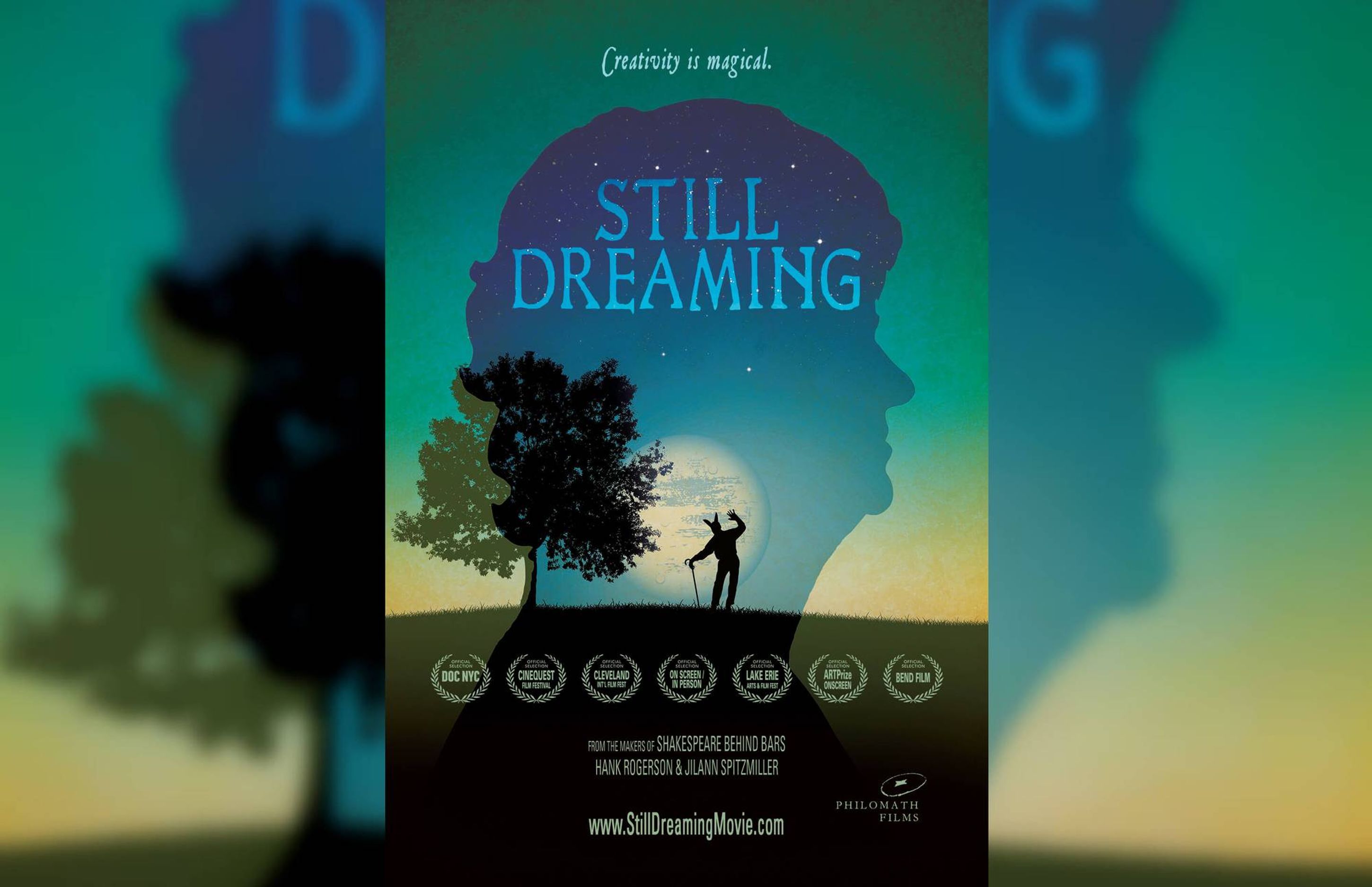'Still Dreaming' Shines a Spotlight on Creative Aging
Performers prepare for a Shakespeare production in the award-winning documentary
“It seems to me that yet we sleep, we dream.” — William Shakespeare, A Midsummer Night’s Dream

“[Performing] really is my whole life inside.” — Aideen O’Kelly, a resident at The Lillian Booth Actors Home in Englewood, N.J.
In the award-winning documentary Still Dreaming, the dreams of a group of former actors and performers, all over 70, are re-awakened as they collaborate to mount a production of A Midsummer Night’s Dream at the Lillian Booth Actors Home, an assisted-living facility.
Directed by the husband and wife filmmaking team of Hank Rogerson and Jilann Spitzmiller, Still Dreaming offers a thought-provoking spin on creative aging. Set against the backdrop of daily life at the residence — meals in a common area, medical challenges and Bingo games — the film depicts the staging of Shakespeare’s fanciful story of Hermia, Lysander, Puck and Oberon over the course of six weeks of exhilarating, ambitious, joyful and demanding rehearsals.
Young directors Ben Steinfeld and Noah Brody, two founders of Fiasco Theatre in New York City, guide their older actors along an occasionally bumpy road, from auditions to the final performance.
Members of the Cast
The players, some of whom suffer from Alzheimer’s disease, Parkinson’s disease and other medical conditions, are given the opportunity to reinvigorate their passion for performing, all while memorizing lines of Shakespeare, in order to present the play for their families and fellow residents.
There is Dimo Condos, an imposing man with a shock of white hair, who collects rocks and other objects from the park-like grounds surrounding the residence. Cast as Oberon, the King of the Fairies, as well as Theseus, the ruler of Athens, he loudly rehearses his lines while out on his daily walks.
Although Condos' commitment to the production is intense (leading to a climactic confrontation with the play’s directors), the actor, who admits his career was never as successful as he hoped it would be, says during the film, “There is something rudimentary about who you are when you are acting.”
Charlotte Fairfield, who once served as a “stand-by” for Angela Lansbury in the Broadway production of Mame, suffers from Alzheimer’s but hasn’t lost her beautiful singing voice. During a break from rehearsal as Puck, her version of You’ll Never Walk Alone, accompanied by pianist Joan Stein (afflicted with scoliosis and Parkinson’s) is a tour de force performance. In one poignant moment, Fairfield raises her arm as her voice reaches a crescendo — her resident I.D. bracelet clearly visible on her wrist.
And Aideen O’Kelly, forced to leave the stage as a younger woman due to vision problems, delights in the opportunity to play the part of Quince until challenges with her health, along with the rigors of memorization, compel her to reluctantly bow out. At one point, she is shown behind the window of a door, gazing wistfully at the actors rehearsing.
https://player.vimeo.com/video/108733825
A Welcome Presence
Rogerson and Spitzmiller, directors of the award-winning documentary Shakespeare Behind Bars, wanted to do a film that would illuminate the importance of creative aging in a unique way. Still Dreaming was filmed in 2011 and began making the rounds of the festival circuit in 2014, where it won several awards.
“The Lillian Booth Actors Home already had a Shakespeare group and many of the residents had acting experience, so it seemed like an ideal place to make the film,” said Spitzmiller.
The couple, who live in Santa Fe, N.M., rented a house about two blocks from the Actors Home and were onsite five days a week filming rehearsals, often returning on the weekends to interview residents, who welcomed their presence.
Spitzmiller fondly recalled conversations with Fairchild, who did not remember seeing the pair from day to day, and always greeted them by saying, “A film crew — what a complete delight!”
The Intergenerational Element
Brody and Steinfeld, who are on camera frequently during the film, were faced with several challenges throughout the course of the six weeks.
“Even though Noah and Ben really had no idea what they were getting into, they always brought high expectations for the people (involved) to be honest actors,” said Spitzmiller. “It was very exhausting for them, but it was admirable how they were really able to pull it off.”
Rogerson said the intergenerational element of featuring young directors was appealing to them as filmmakers.
“That’s a really important part of creative aging and working with older adults,” he said. “It creates a nice dialogue and a positive experience.”
However, Brody and Steinfeld were also forced to negotiate an incident which could have ruined the production. When Lynette Loose, playing the part of Hermia, is visibly flustered during one of the final rehearsals, Condos becomes very angry not only with her, but with the directors.
“Tension had been building under the surface, and we had watched that unfolding,” said Rogerson. “But as often happens in theater productions, tempers flare. The residents cared [about the production], the guys cared.” As Spitzmiller added, “There were a lot of different colors being revealed in that scene.”
Impact of Creative Aging
Since its release, Still Dreaming has been shown at conferences, events and festivals across the country, and according to Rogerson, response to the film has been positive and gratifying.
“People who work with older adults have told us they feel validated — they are the ones who see the enormous value of creativity and what it can provide,” he said. “The film shines a new light onto what’s possible.”
The couple has also been encouraged by feedback from viewers who find personal connections to the film. “People will tell us that someone reminded them of their mom, their dad, their aunt, and how important living creatively was to those loved ones,” said Rogerson.
While both are involved in other film projects now, they would welcome future opportunities to highlight the creative aging movement.
“I’d love to see creativity in aging reach the same level of awareness as the importance of exercise has,” said Spitzmiller. “With the arts, there are ways for people to benefit cognitively, socially and physically. It checks all the boxes on the ways we can be nourished.”
For Rogerson, the preconceived notions he carried with him about aging were changed during the course of making Still Dreaming.
“Charlotte, Dimo, Joan and the others were so dedicated to challenging themselves creatively,” he said. “They made the choice to do that. Anything in life is a choice."



